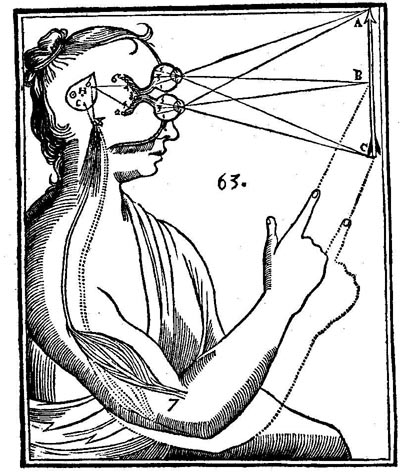This morning on my way to the Bibliotheque Nationale (the Franz Fanon annex, if anyone is interested in specifics) as I first waited for the bus, then decided to just walk, and finally scored a taxi for the remainder of my trip, I figured I could write a few things about conveyance in this city. I have been all over by all means of transport, and since I don’t think any of you have yet been to Algeria I figure I have enough experiential expertise to at least lie in a convincing way. Not that I am making things up, but, you know, eye of the beholder and all that.

Walking: This is the best way to get around the city, as the roadways are congested with too many cars and not enough buses. The sidewalks, when they exist, are also crowded, giving the pedestrian a sense of just how overcrowded the whole city is. They say there is a housing crisis and that there are on average 6 people per household, a household that is usually a three-room (total) apartment. That means that the spillover – mostly young men with no jobs – spends their days roaming the streets or just leaning against the buildings. There is even a special word for the young men who lean up against the buildings, but I can’t remember it at the moment. It’s Arabic for “wall-brace” or something.

So as you can imagine trying to get somewhere in the middle of the day can be something of a chore, but, as most walking in the city, not without its benefits: pretty much just getting to see the layout of the city; I would say health, but I’m not sure it is actually doing me much good to walk around inhaling fumes all day. If there wasn’t so much tough-guy pride in Algeria I would expect to see painter’s masks on pedestrians in the near future.

Crossing the street is its own fun here, as well, as there are no operational crosswalks or traffic lights in the whole city. They both exist, but there is not a single working stop light in the city (although I saw lights working and heeded in Oran) and a crosswalk is more decoration than any meaningful measure of where to cross the street. Instead, you just walk out amongst traffic, either waiting for a slight lull or hoping that the person in the car is looking at you. There you rest in the middle of the street while you choose an opportune moment to cross the other half of the road, buses zooming past, cars honking, exhaust enveloping you…I actually think it is a better system than what exists in, say, Irvine, where I stand at an empty intersection for two minutes waiting for an electronic abstraction of a human to tell me it is safe to cross. Call it personal responsibility. This is only a good policy for the sighted, however.

Bus: If you have a long ways to go, you can always take the bus. There are a number of lines in Algiers, most having to do with going up and over the hill from downtown to the swanky districts in the valley beyond. This is my least favorite option, however, as not too long ago most of the buses in the city were privatized, meaning that today there are only the bare minimum required to convey a mass of humanity up a hill. It is actually quite an incredible sight to see a double-long bus, with one of those accordion-type things in the middle, packed standing-room only along its whole length, with the doors open because people are standing on the bottom steps hanging onto the poles inside.

I should say it is incredible the first time you see it, then you see the next bus come along, and the next, and pretty soon you are habituated. All this is if you are lucky enough to be in a spot where the bus passes. Going to the Bibliotheque, for instance, is technically possible by taking the #15 bus along rue Tilimli. I have, in a week now, seen exactly one #15 bus, and it was going the other way. I walk for a half-hour to get to the BN, every day, and never see a bus going my way. It is supposed to be a regular route. It was quite regular just a few years ago, the Glycine gardien tells me. Maybe there are some things a cash-rich, plodding bureaucracy can do better.

Taxi: Of course taxis are my favorite means of transportation in the city. Not only do you get a comfortable seat, but you also get to hear all the rumors and conspiracy theories about the day’s events from your taxi driver. This holds true for almost all drivers, with the notable exception of the barbus who I’ve ridden with. Maybe it is something about driving an infidel around that makes them clam up.

But taxis here work like this: you stand on the street for ten minutes; you wave at a passing taxi (which is any car with a taxi top: there are no regular cars, you run a taxi by paying for a license and getting surveilled by the police, so you use your own piece of junk (like the ’74 Mercedes I rode in the other day)), he (yes, he, although I have seen one lady taxi driver in Algiers and heard tell of another in Oran) either waves you off or pulls to the side of the road, sometimes blocking the now-honking traffic behind him; you run up to the slightly-ajar window on the passenger side and yell through it where you are going; at this point, the driver either says “no” and waves his finger while driving away, or kind of does a little nod thing that indicates you can get into the car. That’s right, you don’t tell the taxi where to go, you just hope that he is already going the same direction you want. It's probably closer to hitchhiking than hailing a cab, really.

Sometimes this process can take a while, especially when you are trying to get someplace remote, like the Archives. The best part is guessing, while you ride, if the guy is going to charge you the meter rate (if indeed he has a meter in the car) or just make up some number. The made-up numbers are open to haggling, as is nearly everything in this city. There is no agency to call to get a cab to come to the door, either: when you ride with a cabbie that you like, you get his cell number and then call when you need a ride. It is important to get multiple cab numbers, because invariable a few will be “too far away” or “you know, down in the city” when you want a ride. At fancy hotels there are taxis who just sit around, but they charge, on principal, two or three times the normal rate to go somewhere, in order to cover the fact that they sit waiting for fares all day. There are also plenty of illegitimate taxis around town, pretty much any dude with a car will offer you a ride in the evening: they aren’t trying to kidnap you, they are just trying to earn a few extra dollars. Except at the airport, those guys are a bunch of crooks.

I guess conveyance here is like anything else: you feel alternately in danger, neglected, or screwed over, depending largely on the amount of money you are willing to pay to get where you are going.
PS: I should also mention that there is a metro in the works here in Algiers. Yup, in the works, just like its been for the last 17 years...
















































